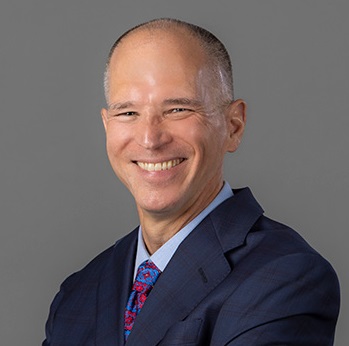Amicus Brief in US Supreme Court’s Loper Bright v Raimondo
QUESTION PRESENTED
Whether the court should overrule Chevron v. Natural Resources Defense Council, or at least clarify that statutory silence concerning controversial powers expressly but narrowly granted elsewhere in the statute does not constitute an ambiguity requiring deference to the agency.
INTEREST OF AMICI CURIAE
The Manhattan Institute for Policy Research (“MI”) is a nonpartisan public policy research foundation whose mission is to develop and disseminate new ideas that foster greater economic choice and individual responsibility. To that end, MI has historically worked sponsored scholarship and filed briefs supporting economic freedom against government overreach.
Richard Epstein is the Laurence A. Tisch Professor of Law at New York University. He also serves as the Peter and Kirsten Bedford Senior Fellow at the Hoover Institution and the James Parker Hall Distinguished Service Professor of Law emeritus and a senior lecturer at the University of Chicago.
Todd Zywicki is George Mason University Foundation Professor of Law at George Mason University Antonin Scalia School of Law and a research fellow of the GMU Law and Economics Center.
Justin “Gus” Hurwitz is a senior fellow and academic director of the Center for Technology, Innovation, and Competition at the University of Pennsylvania Carey Law School.
Geoffrey Manne is the president and founder of the International Center for Law and Economics and a distinguished fellow at Northwestern University’s Center on Law, Business, and Economics.
This case interests amici because it involves an agency regulation that was not explicitly authorized by statute. Indeed, it gives the Court a chance to revisit Chevron—either overruling it or clarifying that statutory silence does not require judicial deference.
SUMMARY OF ARGUMENT
Family-run fishing businesses face a fraught and competitive environment even before the intrusion of burdensome regulations. Here, the National Marine Fisheries Service (“NMFS”) promulgated a rule for certain classes of herring boats that sweeps in most such businesses, as portrayed in the Oscar-winning movie CODA. If a vessel needs a monitor and has not already been assigned one under a federally funded program, it must pay for one itself. The cost for most herring boats exceeds $710 per sea day.
Petitioners, four family-owned and -operated fishing companies, contend that the industry-funding requirement which is not explicitly authorized by statute—will have a devastating economic impact on the herring fleet and will disproportionately impact small businesses, destroying historic communities.
The district court ruled for the government, finding that various provisions of the Magnuson-Stevens Fishery Conservation and Management Act (“MSA”) together conferred broad authority on the NMFS to implement regulations to carry out fishery management plan’s measures. Without any analysis, the court also found that, even if the statute were ambiguous, the government’s reading would be reasonable under Chevron Step Two and thus worthy of judicial deference. A divided panel of the D.C. Circuit affirmed, reasoning that the MSA’s authorization for the placement of monitors, through silence on funding, left room for agency discretion. This Court granted certiorari to determine whether the Court should overrule Chevron U.S.A., Inc. v. NRDC, 467 U.S. 837 (1984), or at least clarify that statutory silence concerning controversial powers expressly but narrowly granted elsewhere in the statute does not constitute an ambiguity requiring deference to the agency.
The Court should now take this opportunity to overhaul the Chevron-deference regime, because this experiment in rebalancing the relationship between administration and judicial review has failed. It has led to agency overreach, haphazard practical results, and the diminution of Congress. Although intended to empower Congress by limiting the role of courts, Chevron has instead empowered agencies to aggrandize their own powers to the greatest extent plausible under their operative statutes, and often beyond. Congress has proved unequal to the task of responding to this pervasive agency overreach and now has less of a role in policymaking than in the pre-Chevron era. Courts, in turn, have become sloppy and lazy in interpreting statutes. It’s a vicious cycle of legislative buckpassing and judicial deference to executive overreach.
Chevron deference rests on the presumption that Congress won’t over-delegate and that agencies will be loyal agents. But the past 40 years have shown that Congress loves passing the buck and agencies are actually principals who pursue their own interests. The time has more than come for the Court to revisit Chevron, whether it chooses to overrule it explicitly or keep it nominally under a newly restricted standard. Cf. Kisor v. Wilkie, 139 S. Ct. 2400 (2019) (preserving Auer deference but reworking it so completely that both Chief Justice Roberts, who joined Justice Kagan’s majority opinion, and Justice Kavanaugh, who joined Justice Gorsuch’s effective dissent, noted that there wasn’t much difference between the two).









